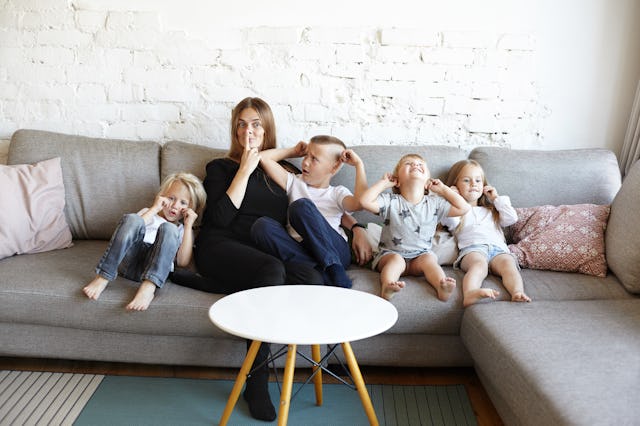Researchers Say Having More Than Two Kids Adds An Extra 6.2 Years Of Aging To Parents
A new study shows that people who have three or more kids suffer more cognitive decline later in life.

You may have noticed, after becoming a parent, that your brain doesn’t work in quite the same way it used to. Many new mothers struggle with forgetfulness, and research has shown that it isn’t simply the result of a lack of sleep. Pregnancy changes the brain, primarily via a reduction of gray matter that may help you attach to your baby and adjust to motherhood.
It’s called “mom brain” by many, but really it’s more complicated than that.
While previous studies have found a positive correlation between having children and later neurological function, a recent analysis from researchers in the U.S. and France, published this week in the journal Demography, found that having three or more children, instead of two, led to worse cognitive function later in life.
For once, this burden seems to be shared equally by mothers and fathers, with a similar decrease in cognition shown for both men and women.
Researchers analyzed data collected from adults ages 65 and up in 20 different European countries and Israel. All participants had a minimum of two biological children.
“The negative effect of having three or more children on cognitive functioning is not negligible, it is equivalent to 6.2 years of aging,” said Eric Bonsang, one of the researchers.
The study did not isolate the variables responsible for this cognitive decline, but researchers had a few guesses.
As you also may have noticed, having children is incredibly expensive. Each additional child increases the likelihood that a family will tip into poverty, and money trouble means more stress for every member of the family. Additional kids may also shorten the amount of time women spend in the workforce, not to mention affect their career trajectory. More children also mean more years of strain and fewer hours of sleep for parents and less time to unwind. With less down time, researchers suggest that parents may not be able to engage in the kind of “cognitively stimulating leisure activities” that might sustain brain function over time.
They may also have to retire later in life.
Researchers did not weigh in on the question of whether locking yourself in the bathroom and scrolling on your phone counts as “cognitive stimulation,” or even “leisure.”
The study’s authors stress that more research needs to be done on why having more kids causes the brain to age more quickly — and how it compares to the brains of people who have one child or no children.
On a more serious note, given that the impact of parenthood on the body and mind extends all the way into old age, it’s critical that every one of us has the right to choose whether or not to add another child into our families. This research should be taken even more seriously in this moment when reproductive rights in the United States are on the line.
This article was originally published on